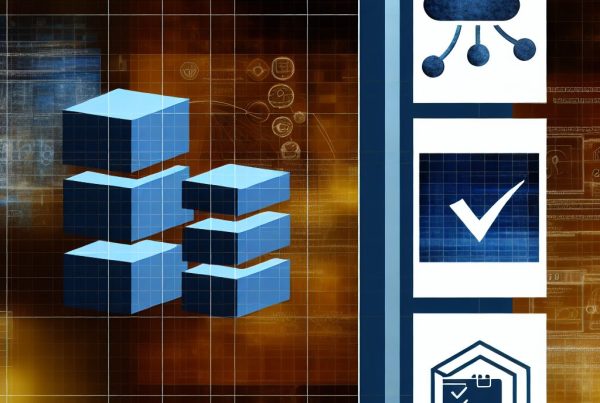What Is a Non-Custodial Wallet?
In the rapidly evolving world of cryptocurrency, understanding the tools and technologies that facilitate transactions is crucial. One such tool is the non-custodial wallet. This type of wallet has gained significant traction among crypto enthusiasts due to its unique features and benefits. In this article, we will delve into what a non-custodial wallet is, how it works, its advantages and disadvantages, and much more.
Understanding Non-Custodial Wallets
A non-custodial wallet is a type of cryptocurrency wallet that allows users to have full control over their private keys and funds. Unlike custodial wallets, where a third party holds the private keys on behalf of the user, non-custodial wallets empower individuals to manage their own assets without relying on intermediaries.
In essence, when you use a non-custodial wallet, you are the sole owner of your cryptocurrency. This ownership comes with the responsibility of safeguarding your private keys, which are essential for accessing and managing your funds.
How Non-Custodial Wallets Work
Non-custodial wallets operate on the principles of decentralization and cryptography. Here’s a breakdown of how they function:
- Private Keys: When you create a non-custodial wallet, a unique pair of cryptographic keys is generated: a public key and a private key. The public key is your wallet address, which you can share with others to receive funds. The private key, however, must be kept secret, as it grants access to your wallet.
- Blockchain Interaction: Non-custodial wallets interact directly with the blockchain. When you send or receive cryptocurrency, the transaction is recorded on the blockchain, ensuring transparency and security.
- Software Types: Non-custodial wallets can be software-based (desktop or mobile applications) or hardware wallets (physical devices). Each type has its own security features and user experience.
Types of Non-Custodial Wallets
Non-custodial wallets come in various forms, each catering to different user needs:
1. Software Wallets
Software wallets are applications that can be installed on your computer or mobile device. They are user-friendly and suitable for everyday transactions. Examples include:

2. Hardware Wallets
Hardware wallets are physical devices that store your private keys offline, providing enhanced security against hacking attempts. Popular options include:
3. Paper Wallets
A paper wallet is a physical printout of your public and private keys. While it offers a high level of security, it is also vulnerable to physical damage or loss.
Advantages of Non-Custodial Wallets
Non-custodial wallets offer several advantages that make them appealing to cryptocurrency users:
- Full Control: Users have complete control over their funds and private keys, reducing the risk of loss due to third-party failures.
- Enhanced Security: By keeping private keys offline (in the case of hardware wallets), users can protect their assets from online threats.
- Privacy: Non-custodial wallets often require minimal personal information, allowing users to maintain their privacy.
- Decentralization: These wallets align with the core principles of cryptocurrency, promoting a decentralized financial system.
Disadvantages of Non-Custodial Wallets
While non-custodial wallets have numerous benefits, they also come with certain drawbacks:
- Responsibility: Users are solely responsible for managing their private keys. If lost, access to funds is permanently lost.
- Complexity: For beginners, the process of setting up and using a non-custodial wallet can be more complex than custodial options.
- Limited Recovery Options: Unlike custodial wallets, which may offer recovery options, non-custodial wallets typically do not provide such services.
Real-World Use Cases of Non-Custodial Wallets
Non-custodial wallets have been utilized in various scenarios, showcasing their versatility and importance in the cryptocurrency ecosystem:
1. Peer-to-Peer Transactions
Non-custodial wallets facilitate direct peer-to-peer transactions without the need for intermediaries. For instance, users can send Bitcoin directly to each other using their wallet addresses, ensuring faster and cheaper transactions.
2. Decentralized Finance (DeFi)
In the DeFi space, non-custodial wallets are essential for interacting with decentralized applications (dApps). Users can lend, borrow, and trade cryptocurrencies directly from their wallets without relying on centralized exchanges.
3. NFT Marketplaces
Non-custodial wallets are commonly used in the buying and selling of non-fungible tokens (NFTs). Users can connect their wallets to NFT marketplaces, allowing them to manage their digital assets securely.
Choosing the Right Non-Custodial Wallet
Selecting the right non-custodial wallet depends on various factors, including security, usability, and the specific cryptocurrencies you intend to store. Here are some tips to consider:
- Security Features: Look for wallets that offer strong security measures, such as two-factor authentication (2FA) and backup options.
- User Interface: Choose a wallet with an intuitive interface that suits your level of expertise.
- Supported Cryptocurrencies: Ensure the wallet supports the cryptocurrencies you plan to use.
- Community Feedback: Research user reviews and community feedback to gauge the wallet’s reliability and performance.
Frequently Asked Questions (FAQs)
What is the difference between a custodial and a non-custodial wallet?
A custodial wallet is managed by a third party that holds your private keys, while a non-custodial wallet allows you to control your private keys and funds directly.
Are non-custodial wallets safe?
Non-custodial wallets can be safe if users follow best practices for security, such as keeping their private keys secure and using hardware wallets for added protection.
Can I recover my funds if I lose my private key?
No, if you lose your private key for a non-custodial wallet, you will not be able to recover your funds. It is crucial to back up your keys securely.
Do non-custodial wallets support all cryptocurrencies?
Not all non-custodial wallets support every cryptocurrency. It is essential to check the wallet’s compatibility with the specific coins you wish to store.
Conclusion
Non-custodial wallets represent a significant advancement in the cryptocurrency landscape, offering users autonomy, security, and privacy. By understanding how these wallets work and their advantages and disadvantages, you can make informed decisions about managing your digital assets. As the cryptocurrency industry continues to grow, non-custodial wallets will play a vital role in promoting decentralization and empowering users.
For the latest news and updates in the crypto world, consider visiting Bitrabo. You can also follow me on social media for more insights: X, Instagram, and Threads.
Disclaimer: This article is for informational purposes only and should not be considered financial advice. Always do your own research before investing in cryptocurrencies.
The Crypto Watchlist of the Week 🔎
Subscribe to receive expert-curated projects with real potential—plus trends, risks, and insights that matter. Get handpicked crypto projects, deep analysis & market updates delivered to you.


